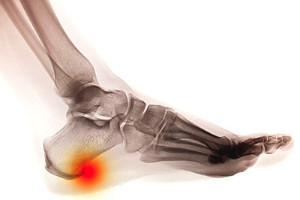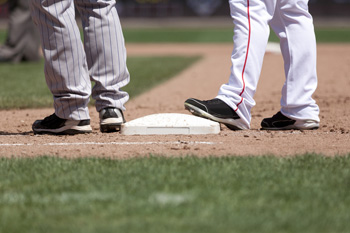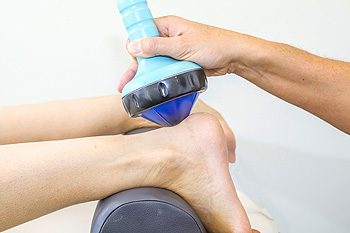 The condition that is known as a heel spur can cause pain and discomfort. It happens as a result of a calcium deposit that forms between the arch and the heel of the foot. The symptoms that are often associated with this condition can include difficulty in walking barefoot, pain in the heel and surrounding areas, and swelling and inflammation. It can develop with muscle and ligament tension, which may cause the soft tissues to wear out. People who frequently participate in sporting activities that involve running and jumping may be prone to developing heel spurs. It is beneficial to wear shoes that have adequate cushioning in the heel area, in addition to resting and elevating the foot as often as possible. If you have developed a heel spur, it is advised that you speak to a podiatrist who can recommend treatment options that are correct for you.
The condition that is known as a heel spur can cause pain and discomfort. It happens as a result of a calcium deposit that forms between the arch and the heel of the foot. The symptoms that are often associated with this condition can include difficulty in walking barefoot, pain in the heel and surrounding areas, and swelling and inflammation. It can develop with muscle and ligament tension, which may cause the soft tissues to wear out. People who frequently participate in sporting activities that involve running and jumping may be prone to developing heel spurs. It is beneficial to wear shoes that have adequate cushioning in the heel area, in addition to resting and elevating the foot as often as possible. If you have developed a heel spur, it is advised that you speak to a podiatrist who can recommend treatment options that are correct for you.
Heel spurs can be incredibly painful and sometimes may make you unable to participate in physical activities. To get medical care for your heel spurs, contact one of our podiatrists from Canonsburg Podiatry Associates. Our doctors will do everything possible to treat your condition.
Heels Spurs
Heel spurs are formed by calcium deposits on the back of the foot where the heel is. This can also be caused by small fragments of bone breaking off one section of the foot, attaching onto the back of the foot. Heel spurs can also be bone growth on the back of the foot and may grow in the direction of the arch of the foot.
Older individuals usually suffer from heel spurs and pain sometimes intensifies with age. One of the main condition's spurs are related to is plantar fasciitis.
Pain
The pain associated with spurs is often because of weight placed on the feet. When someone is walking, their entire weight is concentrated on the feet. Bone spurs then have the tendency to affect other bones and tissues around the foot. As the pain continues, the feet will become tender and sensitive over time.
Treatments
There are many ways to treat heel spurs. If one is suffering from heel spurs in conjunction with pain, there are several methods for healing. Medication, surgery, and herbal care are some options.
If you have any questions feel free to contact our office located in Canonsburg and McMurray, PA . We offer the latest in diagnostic and treatment technology to meet your needs.





